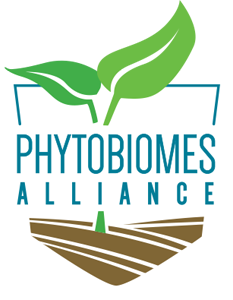
Gary Felton

Role in Phytobiomes Alliance
Coordinating Committee, Topical Leader in insect-microbe-host interactions
Affiliation
Position
Professor and Head of the Department of Entomology
Research Interests
- Multitrophic interactions between plants, herbivores, microbes, and natural enemies
- Mechanisms of plant defense
- Mechanisms by which herbivores evade host defenses
- Perception of herbivores by plants
Current Phytobiomes-related Projects
Multitrophic Manipulation of Herbivore Perception by Plants
Summary: Herbivore oral secretions may contain elicitors or herbivore-associated molecular patterns (=HAMPs) that are perceived by plants and then trigger an array of induced defenses. However, plant perception of herbivores and their HAMPs may be manipulated by higher trophic levels. Suppression of direct plant defenses may allow the herbivore to grow faster and thus serve as a better host for the third trophic level. Manipulating herbivore perception could also benefit the third trophic level by reducing the sustained release of volatiles that would attract competitors including predators that may consume parasitized hosts. The central hypothesis is that the third trophic level manipulates herbivore perception by plants by 1/ altering the production of HAMPs and/or effectors and/or 2/ altering herbivore feeding behaviors. To test the hypothesis, the following aims are proposed: 1/ Determine if baculoviruses and parasitoids (and their symbiotic polydnaviruses) modulate the synthesis and activity of caterpillar salivary HAMPs or elicitors and effectors; 2/ Examine how baculoviruses and parasitoids/polydnaviruses alter the feeding behavior of their insect hosts and affect induced plant defenses; and 3/ Determine if baculoviruses and parasitoids/polydnaviruses manipulate plant defenses to their own benefit. A variety of molecular, biochemical, and behavioral assays are being used to address the aims. The model system includes two of the most important crops in the world: maize and tomato. The herbivores (i.e., corn earworm=CEW, Helicoverpa zea and fall armyworm=FAW, Spodoptera frugiperda) are generalist noctuid caterpillars and are arguably two of the most important pests in the New World. The third trophic level includes two parasitoid species: the specialist Microplitis croceipes and the generalist Cotesia marginiventris, in addition to three baculovirus species: the two specialists HzSNPV and SfSNPV, and the generalist AcMNPV. It is predicted that the specialist natural enemies exert greater control over the physiology and behavior of their hosts than the generalist species and thus have a strong influence on the expression of plant defenses. The documented physiological and behavioral manipulation of the herbivore by the third trophic level will demonstrate a previously unrecognized level of complexity to understanding the interactions of plants with their enemies. Long term applications of this research will aid in the selection of biological control agents best matched to provide crop protection against herbivore pests.
Gut Bacteria Mediate the Perception of Caterpillars by Plants and Parasitoids
Summary: Chewing herbivores cause massive damage when they crush plant tissues with their mandibles, thus releasing a vast array of cues that may be perceived by the plant to mobilize defenses. Among those cues are bacteria that are deposited during feeding by some herbivores such as beetles to suppress defenses. In a different system, we have compelling evidence from field-collected caterpillars that their gut bacteria play a critical role in suppressing induced plant defenses in response to herbivory, but the mechanisms appear to differ. Virtually all studies to date, which focused on elicitors or effectors in caterpillars have used lab colonies thus neglecting naturally-occurring gut bacteria that mediate the expression of plant defenses. Our data provide compelling support for testing the hypothesis: H: Caterpillar gut bacteria mediate the perception of caterpillars by plants and natural enemies. We testing this hypothesis with the following objectives: 1. Determine how caterpillar gut bacteria mediate suppression of induced plant defenses; 2. Identify specific bacteria mediating perception of caterpillars; 3. Determine if caterpillar gut bacteria affect host finding by parasitoids. We will use two field-collected species: Helicoverpa zea and Spodoptera frugiperda, feeding on tomato and maize with the parasitoid Cotesia marginiventris to test the hypothesis. Completing the objectives will uncover the overlooked role of gut microbes in mediating plant-herbivore interactions. The identification of bacteria mediating plant-insect interactions provides a wealth of new approaches to protecting plants from insect pest damage.
